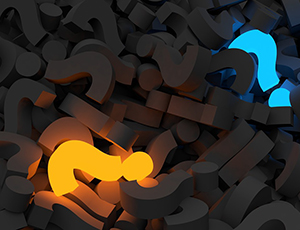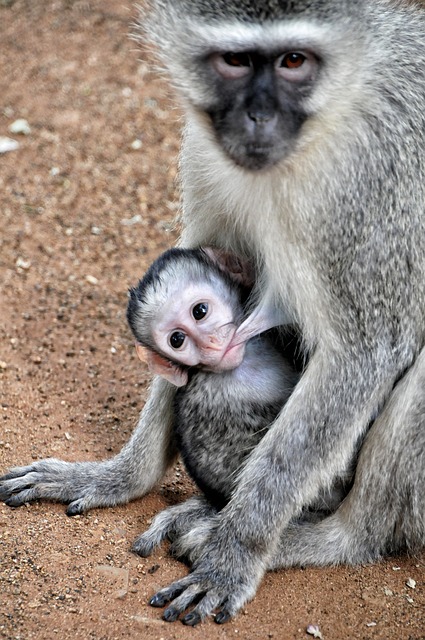
In the age of social media, filter bubbles, and strong polarisation of opinions, fake news plays an increasingly important role in shaping public opinion. The reason behind this is directly tied to the nature of our social behaviours. Dr Małgorzata Majewska from the JU Institute of Journalism, Media and Social Communication explained to us the complexities of this issue.
We begin our story in the times before the Internet, cell phones, and other advanced communication technologies – the times of the first Homo sapiens. In his book Sapiens. A Brief History of Mankind, Yuval Noah Harari claims that the power of gossip made humans the dominant species on Earth. We are social creatures by nature, so we must cooperate within our tribe to meet our two most important needs: survival and procreation. The Israeli historian proposes that it wasn’t enough for primitive men and women to know where the lions and bison are. It was more important for them to know who hates whom, who sleeps with whom, who speaks the truth, and who is a liar. This is where gossip enters the stage.
Some may say that gossiping is trivial, that it’s something of little or no importance. But let’s acknowledge how much time and energy it would take to individually assess the character of every member of the tribe! If one had to single-handedly verify the trustworthiness of all others, they would waste a great portion of their life. Harari calculated that a group of 50 people contains 1,225 individual relationships and countless other social bonds and dependencies. In other words, gossiping is very cost-effective.
 In the light of these facts, there arises a question about the difference between human communication (including gossiping and its latest version – fake news) and the communication of other animals. Well, for instance, grivets are able to inform their herd that there’s a lion at the watering hole. They can also differentiate between terrestrial and airborne dangers. At the same time, they are unable to do what every human can do with ease: tell their fellow monkey what two other monkeys did while it was searching for food. What’s more, they just can’t grasp the concept of future. Grivets don’t ponder over the consequences that a single sex act might have for the entire tribe. In contrast, in our society, other people sometimes know more about certain aspects of our lives than we do. Gossip allows us to shape reality with fiction – one case of that would be the witch trials, where many innocent women were burnt at the stake for practicing magic.
In the light of these facts, there arises a question about the difference between human communication (including gossiping and its latest version – fake news) and the communication of other animals. Well, for instance, grivets are able to inform their herd that there’s a lion at the watering hole. They can also differentiate between terrestrial and airborne dangers. At the same time, they are unable to do what every human can do with ease: tell their fellow monkey what two other monkeys did while it was searching for food. What’s more, they just can’t grasp the concept of future. Grivets don’t ponder over the consequences that a single sex act might have for the entire tribe. In contrast, in our society, other people sometimes know more about certain aspects of our lives than we do. Gossip allows us to shape reality with fiction – one case of that would be the witch trials, where many innocent women were burnt at the stake for practicing magic.
Fake news is virtual gossip; information that lost its connection to its source. It’s defined as news that appeared in the media and was later proved to have been fabricated and intentionally misleading. When sharing such information on social media, people assume it’s true, just as gossipers believe the things they hear and then tell others. They trust their source, just as their source trusted another source. It’s often very hard to determine the origin of fake news.
Why do we share information of questionable trustworthiness? Tania Yuki analysed two thousand most and least shared posts on Facebook. Next, she asked ten thousand users what conditions have to be met in order for them to share a post. Here we have to remember that human is a social animal shaped by the evolution to rely on community for survival. Before the Internet, that community was our ‘tribe’ – our family, friends, and those that live in the neighbourhood. We didn’t evolve with the ability to sit in front of a computer and access an innumerable number of communities that promise us a sense of belonging because of certain worldviews (vegetarianism, Catholicism, environmentalism etc.).
As stated by Yuki, sharing posts is directly tied to the concept of social currency. What we say to others defines our image. For instance, when someone shares an article about the latest research on procrastination, they present themselves as an intelligent person. Another one might tweet about Leonardo DiCaprio’s Oscar just seconds after it’s been awarded, signalling that they follow the latest news. Yet another person posts a picture of a man throwing stones at dinosaurs to show they have a sense of humour. The things we share online define us in the eyes of others. We like to show that we’re smart and funny, and therefore beneficial and safe for our community.
‘Safe’ is the keyword here. The desire to share useful information is the extension of our need for safety. If someone posts a warning about extreme weather or a dangerous person, what they’re effectively saying to their community is: ‘I’m useful, let me stay with you’. We tell each other things in order to elicit certain reactions: happiness, inspiration, empathy, fear, anger, and others. So, a video about a labrador retriever taking care of an injured chicken competes for our attention with a post about supposed carcinogenic properties of kitchen sponges and a story about big pharma companies secretly poisoning us so they may earn money from selling medicine. Naturally, the most popular Facebook posts are related to storytelling, since they engage people on a personal level. In such posts, people share their private life which allows others to connect with them. Even if someone lives in a totally different culture on the other side of the world, a story about their grave illness moves us, because sickness is part of our life too. We can empathise with them, participate in their daily life.
The story of Belle Gibson, an Australian woman who published Facebook posts about her struggle with brain cancer, is a great example of all the mechanisms mentioned above. She claimed her condition was so serious she only had four months to live, and stated that both chemotherapy and radiation therapy did not help her at all. Finally, she started to eat healthy, exercise, and meditate. She got better and told her story to the world through her blog and Twitter. In 2013, she created an app called The Whole Pantry, which was downloaded 200,000 times within the first month. It was only later that it became apparent she never had cancer at all, and all the information she posted about her condition was fake. People shared her story without ever fact-checking it. They believed their friends, and so they vicariously believed her.
In our sharing frenzy, a lot of us forget that we should verify what we read online. In the past, gossips only affected a narrow circle of people. In the age of broadband Internet connection, fake news can rapidly reach thousands of users and severely damage (if not destroy) a person’s credibility. When a doctor shares a post about flat Earth, they lose the trust of their patients. When journalists report fake news, they become unreliable, because people are concerned that they might not be thorough in their research. When politicians cite a false scientific theory, their voters fear they may lack essential knowledge.
Fake news cannot be removed from the Internet, just as gossip can’t be removed from human culture. It’s a tool for social regulation. It’s an indicator of credibility and reliability of the most important thing for any community: trust. However, knowing about the private life of your friends and neighbours used to form and strengthen the tribe. Now, when most tribes are fully formed and governed by elected individuals, gossip is employed to ever more brutally test if any given member is worth of the position they occupy in the pecking order.
Original text: www.nauka.uj.edu.pl





